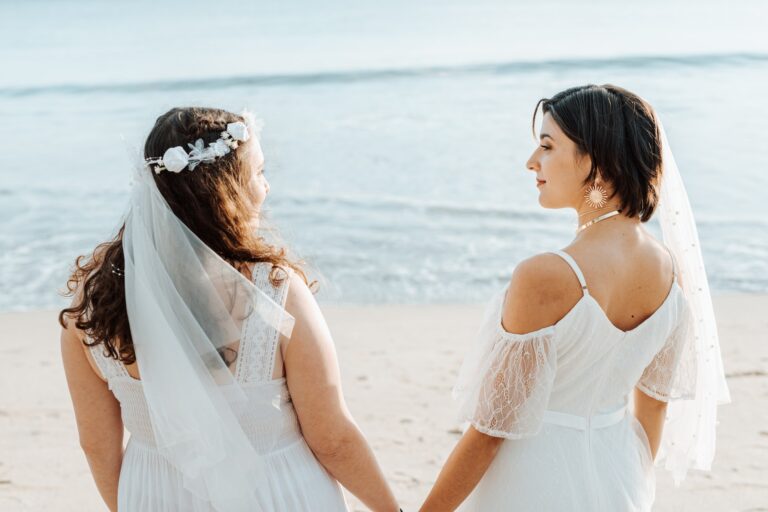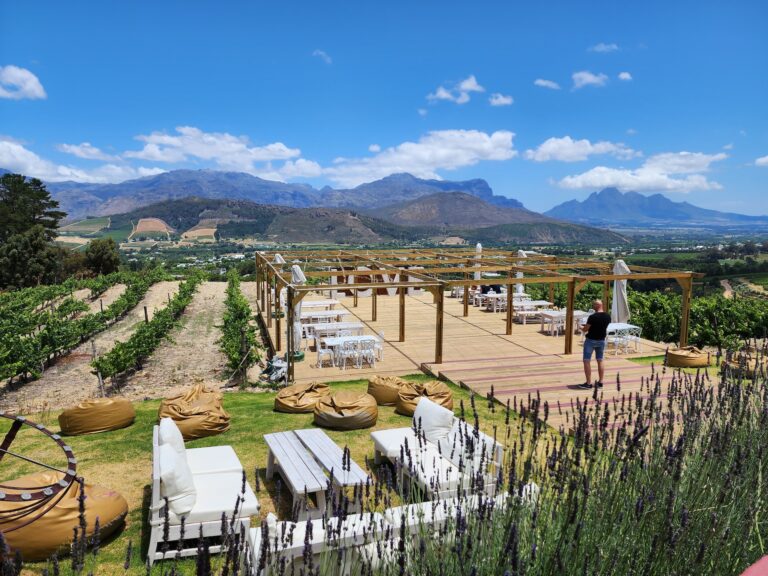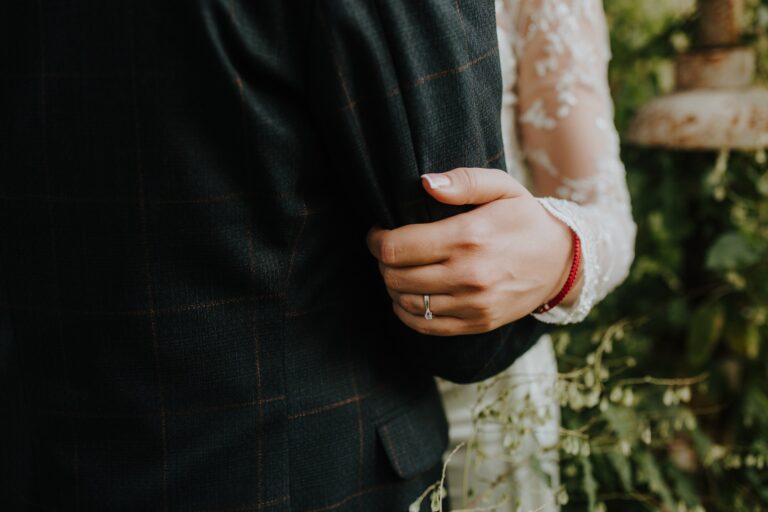Landis Bejar, AisleTalk Counselor Weighs in on Navigating Your Wedding during the Pandemic

For a moment there it seemed like the COVID pandemic was moving out of effecting every step of our lives, but here we are, STILL talking about it. Sure, we’re all over it, but for many couples planning their weddings for this year and next, COVID isn’t something they can just try to ignore. It’s a cause of stress, frustration and confusion. There’s also no rule book on how we’re supposed to navigate all those emotions while trying to pull off the wedding of our dreams.
In our new series, we’re reaching out to wedding experts to get their advice on maintaining sanity, persevering through constant change, and keeping the joy and wedding dreams alive.
Wedding Expert:
Landis Bejar
Licensed Mental Health Counselor, New York State
Founder of AisleTalk, a coaching and therapy service for people who are about to get married.
“Basically, I founded this practice, after I experienced a couple of friends, family, clients, going through their weddings, and even myself, kind of looking at the sort of psychological intersection between planning a big event like this, it’s a huge milestone with a lot of family and friend expectations and the pressure that it can put on things and how things can kind of arise in that way.” The practice has been active for three years now and has grown to a team of three. In the last 18 months Bejar has been particularly busy helping clients trying to navigate planning a wedding amidst the pandemic.
“People who have been planning and replanning, postponing and rescheduling, and a lot of what I’ve coined as postponement fatigue, this sort of emotional whiplash that comes with finally making the decision to change the scope of what things look like and finally commit to something else. And then what we’re seeing a lot of the last couple months or so is saying, ‘Oh, wait, now I might have to do this again.’ And all the layers of that we have people, family members or friends with different opinions, and looking at a lot of what comes up with that is kind of like a loss of what your wedding was supposed to look like, or what you envisioned it looking like. You might have been planning for a year, two years, your whole life. So having that change what it looks like, and it’s really hard for folks.”
Embrace your feelings rather than apologizing for them.
Bejar says that nearly without exception, clients who are struggling with the negative emotion of the pandemic will apologize for feeling that way. “They will end explaining their concerns by saying something like, ‘I just feel like crap, because I know how many other things are going on in the world and this is what I’m upset about?’” So Bejar says the first thing to note is that this is a very universal experience that many people are going through.
Next she says to understand that feeling bad about your bad feelings isn’t good for your mental health. “Sometimes in extreme cases, that can lead to a toxic positivity type of framework that we really try to avoid in therapy. The fact is that the things that upset you are the things that upset you. Just because it’s not the biggest problem in the world, doesn’t mean it doesn’t need its own space, and doesn’t mean it’s not real.”
And avoid comparing your situation to that of others.
Bejar says it’s important to remember that just because someone may have it worse than you, doesn’t mean that it’s going to make it easier for you. “One person’s worse is another person’s fine. And another person’s fine is another person’s worse, and it doesn’t really serve us to go around comparing.”
Acknowledge YOUR feelings.
Many times during wedding planning, particularly during the pandemic, we worry about everyone’s feelings and forget about our own. “Acknowledge those feelings,” urges Bejar. “I always say feelings are like a beach ball. Try to keep it under water. It’s almost impossible. It will eventually pop up, sometimes when you least expect it.”
Talk about your feelings.
“That usually is going to actually make them kind of pass by quicker,” explains Bejar. “Remember, feelings are not permanent. If we give them a little bit of space and we acknowledge them, and we ask them, ‘What do they need?’ we’re going to be in a much better place than if we try to suppress them.”
Don’t read too much into negative emotions.
“Our society tells us that weddings are just rainbows and butterflies and you should be on Cloud Nine the entire time. And if you feel anything outside of that, you’re doing it wrong.” Bejar said worse yet, it can make us feel like something is wrong with us or our relationship. “It’s a huge life change, and asks a lot of partners, when they’re bringing two families together, when they’re trying to plan a large-scale event, when they’re also thinking about forever and the commitment that comes with that.”
Find compassion for yourself.
Many couples who are planning fall weddings for 2021 thought they were in the pandemic clear. And then came the rise of the Delta variant. Bejar says she’s been experiencing an influx of couples who don’t know what the “right” thing is to do. “You have one person over here telling you this is what they need to be happy and then another person over there saying absolutely not, I will not do that. And you have a budget to consider.”
She says it’s essential to acknowledge you’re planning a celebration of love and family, doing the best you can in an ever changing environment. “Government officials are actively changing things at the moment and learning and making the best decisions possible. So the first thing is find some compassion for yourself. Acknowledge that this is a very tall order for somebody who is not doing this professionally. And even for the people who are doing it professionally.”
Lean on your support squad.
Bejar says it’s important to have a solid support system (think maid of honor, best man, wedding party attendants, your mom) “There’s a lot of unsolicited advice coming your way and we have draw a line between consuming all of it and getting overwhelmed and finding the most important information that will help us make the decisions that are right, for us and for our event.”
Focus on solutions rather than stress.
A lot of worry can come from imaginary scenarios of pandemic “what might happen.” if someone doesn’t want to follow the rules or other “worst case scenario” worries. But rather than stressing about the what ifs, you can put a plan in place with your support system. “Whether it’s somebody that you need to keep the peace in the bridal suite during the day or somebody you need to run errands for you, whatever you need, you can find somebody who’s around you.”
Bejar suggests pinpointing loved ones who are excellent at communicating with people, people who know you and the message that you’re trying to send. “Direct people to that person. And not only that, you can also have messaging on your website, add FAQs on there, places where you can redirect, so you’re not having that conversation over and over again.”
We hope this was helpful advice. Remember Guestie is here to help make your wedding connected, special, and memorable. Build your brand new combined community today. Sign up for Guestie and start your celebration.




